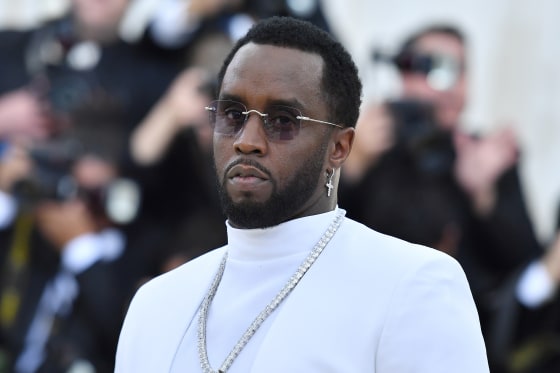Sean “Diddy” Combs’ apology for the 2016 beating of his ex-girlfriend Cassie is falling short among domestic violence groups — and on the internet.
Combs, 54, uploaded the apology to Instagram on Sunday after a video was released that appeared to show him beating Cassie, now 37, a singer whose name is Cassandra Ventura.
In his apology, Combs called his behavior “inexcusable” and said he was going through a difficult time in his life when the attack happened. He said he had sought therapy and entered rehab shortly afterward and was working to “be a better man.”
The violent video matched the description of an incident Ventura detailed in a lawsuit settled in November. Combs had denied Ventura’s allegations. His attorneys said at the time that the settlement was “in no way an admission of wrongdoing.”
As the video made its way online, one person wrote in a post on X, “There’s absolutely nothing genuine about that apology video Diddy just dropped.” Another added: “What yall witnessed was manipulation. The first thing he did was center himself.”
Aubrey O’Day, a former member of the Combs-created girl group Danity Kane, shared a photo of Combs’ previous denial in her own critical post on X. “Diddy did not apologize to Cassie. He apologized to the world for seeing what he did.”
The footage showed Combs chasing a woman down a hotel hallway, pulling her to the ground and beating and kicking her before dragging her by her sweatshirt.
“This is the classic cycle of domestic violence,” Joanna Otero-Cruz, president of the Philadelphia-based Women Against Abuse domestic violence center, said of the apology. Otero-Cruz, who said she has worked in the field for at least 15 years, said apologies are common in gender violence situations and are often used to manipulate victims and the public.
“They’re apologizing and they want to create sympathy from others, apathy from others, all of those things,” Otero-Cruz said. “This is the typical behavior of someone who perpetuates abuse. We’re just seeing it in public now.”
The release of the video came just six months after Ventura sued Combs, alleging that the music mogul had sexually and physically abused her during the course of their relationship. Ventura alleged that, from 2007 to 2018, Combs raped her, beat her, trafficked her and controlled her life. She filed her lawsuit on Nov. 16, 2023, under New York state’s Adult Survivors Act, which gives adult alleged victims of sexual violence a one-year window to file civil claims regardless of the statute of limitations.
He denied the allegations and called them “sickening.” They settled the suit a day after it was filed. Combs faces lawsuits from three other women in New York accusing him of sexual assault, sexual trafficking and other criminal activity. His former producer has also accused him in a lawsuit of sexually harassing, drugging and threatening him. He is also the subject of a federal investigation related to multiple allegations including sex trafficking and sexual assault. Combs has previously denied all of the sexual assault allegations.
The accusations against Combs have renewed conversations about abuse carried out by powerful men and the difficulties Black women face when seeking to hold their abusers accountable.
Research has shown that Black women experience domestic violence at disproportionate rates compared with other ethnic and racial groups. They are killed by men at three times the rate of white women, for example, according to the Women’s Leadership and Resource Center at the University of Illinois, Chicago.
“Black women as a whole experience domestic violence and intimate partner violence higher than any other ethnicity. Yet, oftentimes, Black women are faced with various biases. They don’t look like the perfect victim,” said Nel-Sylvia Guzman, deputy director of The Safe Sisters Circle, a center for domestic violence survivors in Washington, D.C.
“For Black women survivors, they’re battling so many parts of culture, the system fighting against them. That’s why many of them don’t come forward and, if they do, it’s so many years later, like Cassie did.”
Meredith Firetog, an attorney for Ventura, said in a statement Sunday that Comb’s apology was “more about himself than the many people he has hurt.” She added: “That he was only compelled to ‘apologize’ once his repeated denials were proven false shows his pathetic desperation, and no one will be swayed by his disingenuous words.”
Aaron Dyer, Combs’ attorney, did not immediately respond to a request for comment.
Along with social media users and advocates for domestic abuse victims, Combs’ apology has also prompted criticism from public relations experts who have detailed the flaws in it. Daniel Brackins, of the global marketing company Interpublic Group, said Combs’ apology seemed to lack empathy, skirted accountability and did not include plans to “make things right.”
Valese Jones, founder of the Texas-based Sincerely Nicole Media public relations company, shared similar sentiments.
“I believe the video has done more harm than good,” Jones told NBC News. “The apology just doesn’t come across as sincere at all. He was apologizing to the general public because it was about his public image. I don’t think this apology was smart.”
For more from NBC BLK, sign up for our weekly newsletter.

